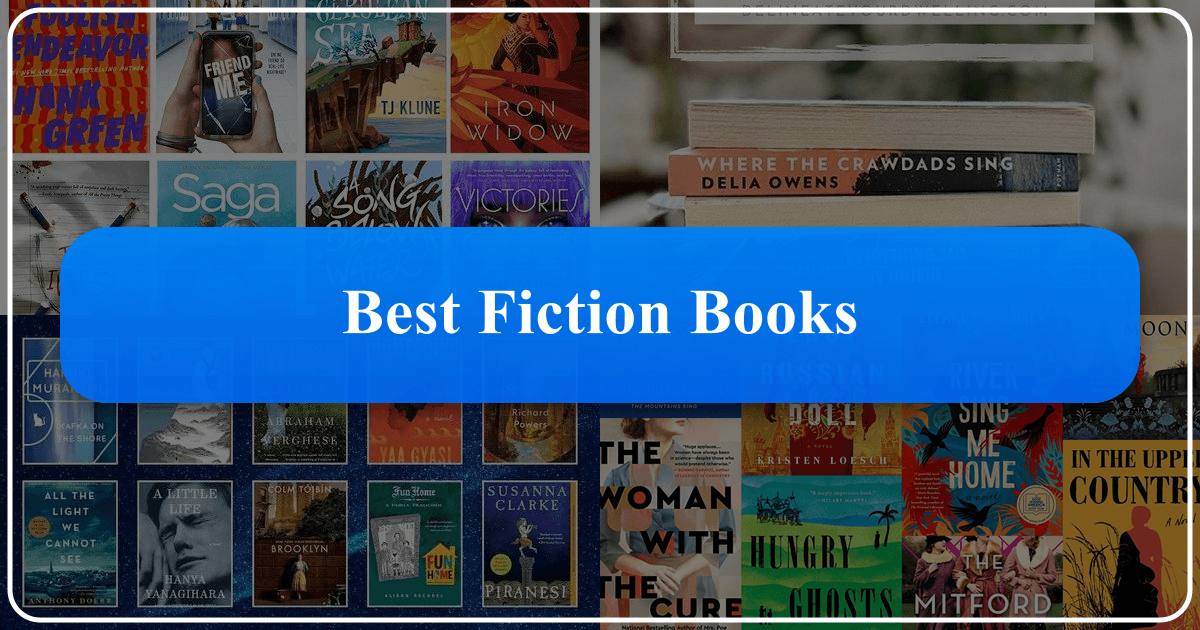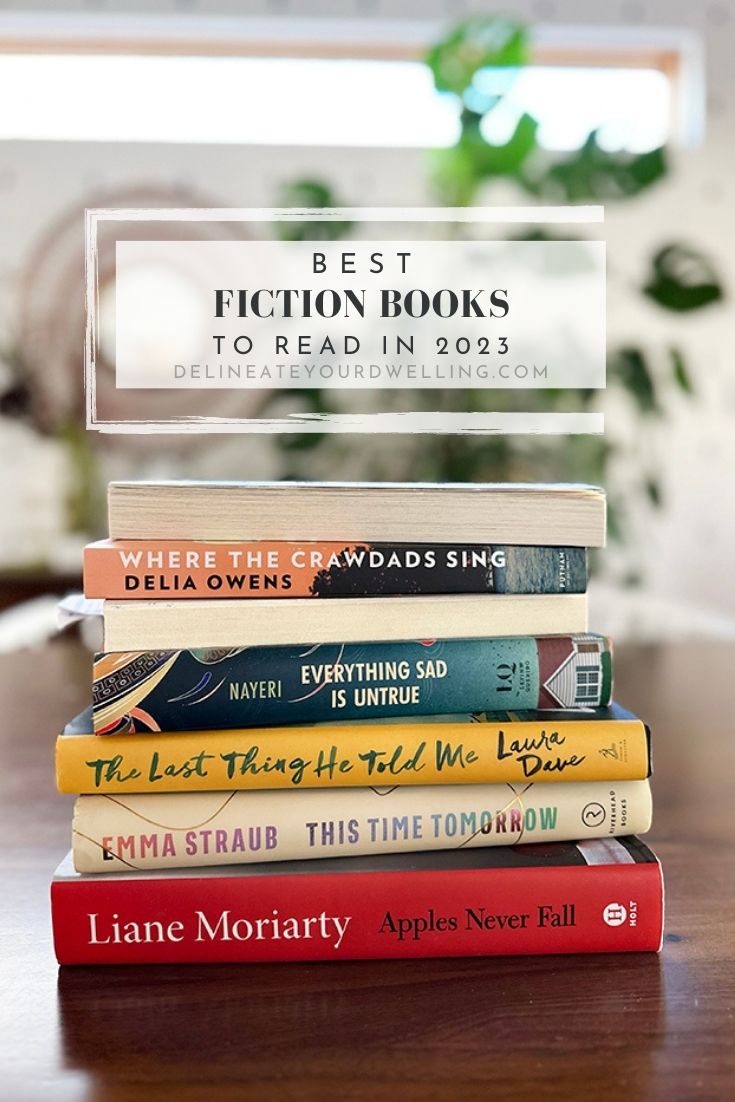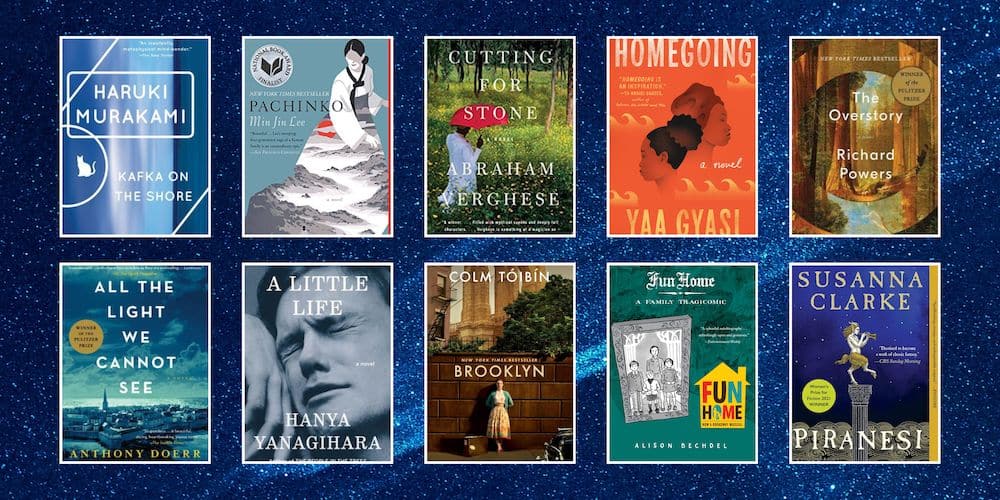The Best Fiction Books: A Journey Through Genres, Authors, and Cultural Impact

Albert Camus famously stated, “Fiction is the lie through which we tell the truth.” This simple sentence encapsulates the profound power of fiction to illuminate the human experience, to transport us to other times and places, and to offer invaluable insights into the complexities of life. This exploration delves into the realm of exceptional fiction, examining both the best new releases and timeless classics that have shaped literary landscapes. We will explore various facets of the literary world, encompassing genres, authors, reading habits, libraries, and the broader cultural impact of fiction.
Exploring the Worlds of Fiction: Genres and Themes
The world of fiction is a vast and varied landscape, encompassing countless genres and subgenres, each with its unique characteristics and appeal. From the heart-stopping suspense of thrillers to the whimsical escapism of fantasy, the emotional depth of literary fiction to the intricate plots of mysteries, the possibilities are endless. The “best fiction books” are not confined to a single genre; instead, they represent a spectrum of styles and themes, each resonating with readers in different ways.

Best Fiction Books of 2025 and Beyond
2025 has already unveiled a compelling array of new fiction, showcasing both established authors and exciting new voices. Among the notable titles are:
-
Rooms for Vanishing by Stuart Nadler: This epic tale explores the enduring power of familial bonds across time and parallel realities, weaving together a story of hope, loss, and the resilience of the human spirit. The novel’s exploration of grief and identity makes it a powerful and moving read.
-
The Cut Throat Trial by S. J. Fleet: A gripping legal thriller that plunges readers into the heart of a high-stakes murder trial, this book expertly uses its unique perspective to examine themes of justice, truth, and the complexities of the legal system.
-
No Friend to this House by Natalie Haynes: This bold reimagining of the Medea myth reclaims the narrative, giving voice to the often-overlooked female perspective and challenging traditional interpretations of classic stories. The fierce and unforgettable portrayal of Medea’s journey makes this a must-read.
-
Uncharmed by Lucy Jane Wood: A captivating story about a ‘perfect’ witch whose meticulously crafted life is disrupted when she mentors a troubled teenage witch, challenging notions of perfection and exploring the importance of embracing imperfection.
-
The Women by Kristin Hannah: Chronicling the experiences of women during the Vietnam War, this novel showcases their strength, resilience, and the power of female friendship in the face of adversity. The novel emphasizes the frequently forgotten contributions of women to historical events.
-
James by Percival Everett: A poignant and humorous novel that gives voice to a marginalized character from The Adventures of Huckleberry Finn, providing a fresh and insightful perspective on slavery and freedom.
-
Long Island by Colm Tóibín: A captivating sequel to Brooklyn, this novel delves into themes of identity, belonging, and the complexities of family relationships, taking the reader back to familiar and beloved characters.
-
This House of Burning Bones by Stuart MacBride: A thrilling crime novel that finds Detective Inspector Logan McRae embroiled in a murder investigation amidst a backdrop of societal unrest and political turmoil, making it a fast-paced and engaging read.
-
Bury Our Bones in the Midnight Soil by V. E. Schwab: A genre-defying novel interweaving the stories of three women across different centuries, exploring themes of freedom, desire, and the enduring power of history. The novel’s complex characters and intricate plot will keep readers enthralled.
-
Thirst Trap by Gráinne O’Hare: A bittersweet and humorous novel exploring themes of friendship, loss, and growing up, the story follows three women navigating the complexities of life after the tragic death of a friend. The novel’s relatable characters and poignant story create an impactful narrative.
-
Ripeness by Sarah Moss: This novel explores themes of familial love, migration, and new beginnings, highlighting the lasting impact of choices and the journey of self-discovery.
-
The Manual for Good Wives by Lola Jaye: A powerful historical novel employing a dual narrative to tell the story of a Victorian woman and the hidden realities behind her seemingly perfect life, highlighting the social injustices of the past.
-
Fair Play by Louise Hegarty: A unique debut novel that weaves together two different narrative styles and genres, exploring the concept of grief and challenging readers with surprising twists and turns.
-
Days of Light by Megan Hunter: This novel follows a woman across multiple decades, charting her journey through life’s joys and challenges, as she explores love, art, and the search for meaning.
-
Mere by Danielle Giles: A hypnotic historical fiction novel transporting readers to 10th-century Norfolk, where the lives of nuns are intertwined with mystery and secrets.
-
The Paris Express by Emma Donoghue: A captivating historical thriller set on a train journey, this book deftly interweaves multiple storylines and characters to deliver a fast-paced and suspenseful read.
-
The Ragpicker King by Cassandra Clare: This epic sequel builds on its predecessor, entangling the protagonists in the dangerous criminal underworld and challenging readers with difficult choices and consequences.
-
Instructions for Heartbreak by Sarah Handyside: This novel offers a relatable portrayal of heartbreak and friendship, illustrating the complexities of romantic relationships and the healing power of connection.
-
Ask Me Again by Clare Sestanovich: A coming-of-age story exploring themes of identity, belief, and the complexities of relationships in a divided world.
-
The Boy from the Sea by Garrett Carr: This debut novel set in 1970s Ireland tells the story of a child found alone on a beach, and adopted by a local family. The novel emphasizes the power of family and community.
-
Salutation Road by Salma Ibrahim: This novel interweaves parallel realities as a woman navigates her life in London and an alternate life in Mogadishu, showcasing themes of identity and belonging.
-
Martyr! by Kaveh Akbar: This poignant novel explores themes of grief, sobriety, and the search for truth about one’s past.
Best Fiction Books of 2024: A Year of Notable Narratives
2024 also offered a diverse collection of compelling fiction, continuing the trend of diverse narratives and engaging storytelling. Some highlights include:
-
Our Evenings by Alan Hollinghurst: This darkly funny novel offers a satirical look at modern England, exploring themes of class, race, sexuality, and the complexities of human relationships.
-
The Restaurant of Lost Recipes by Hisashi Kashiwai: A charming culinary mystery set in Kyoto, this novel interweaves food, memory, and personal journeys to create an enchanting and heartwarming read.
-
The Map of Bones by Kate Mosse: This epic historical fiction novel continues the multi-generational saga of the Joubert family, chronicling their struggles and triumphs across centuries.
-
Juice by Tim Winton: A dystopian novel set in a parched landscape, this book explores themes of survival and the lengths to which humans will go to endure.
-
Wife by Charlotte Mendelson: This profound and humorous novel explores the complexities of love, relationships, and the evolving nature of commitment.
-
I’ll Look for You, Everywhere by Cameron Capello: A romantic novel set in idyllic Italy, this story follows two childhood friends reuniting and navigating their feelings for each other.
-
The Maiden by Kate Foster: A historical thriller inspired by a real-life case, this novel gives voice to a woman wrongly accused of murder, challenging historical perspectives and shedding light on gender inequality.
-
Western Lane by Chetna Maroo: A coming-of-age story exploring themes of grief, sisterhood, and athletic ambition.
-
The King’s Witches by Kate Foster: This historical novel set in 16th-century Scotland explores the lives of women entangled in the era’s witch hunts.
-
The Burial Plot by Elizabeth Macneal: A Gothic thriller that plunges readers into the dark underbelly of 19th-century London, combining mystery, intrigue, and suspense.
-
Wellness by Nathan Hill: A satirical and insightful novel exploring the absurdities of modern culture and the complexities of marriage.
-
Rosarita by Anita Desai: A novel exploring themes of grief, memory, and identity through the lens of a mother-daughter relationship.
-
Maude Horton’s Glorious Revenge by Lizzie Pook: A historical thriller set in Victorian London, this gripping novel explores themes of family, secrets, and justice.
-
Where There Was Fire by John Manuel Arias: A redemption story set in Costa Rica exploring themes of love, heritage, and the impact of natural disasters.
-
How I Won A Nobel Prize by Julius Taranto: A sharp and insightful novel exploring themes of ambition, relationships, and social change.
-
Homecoming by Kate Morton: A captivating mystery set between Australia and London, this novel unravels a family secret spanning generations.
-
Never Too Late by Danielle Steel: A poignant tale of human connection and courage in the face of tragedy.
-
Resurrection by Danielle Steel: This novel explores themes of betrayal, resilience, and finding new beginnings in unexpected circumstances.
-
Song of the Huntress by Lucy Holland: An otherworldly novel based on folklore, this story spans centuries and explores themes of power, transformation, and love.
All-Time Greats: Classics That Endure
Beyond the newest releases, certain novels have achieved a timeless quality, earning their place among the “best fiction books of all time.” These classics continue to captivate readers with their masterful storytelling, enduring themes, and profound impact on literature. Examples include:
-
Trust by Hernan Diaz: This Pulitzer Prize-winning novel explores the complexities of wealth, power, and perception.
-
Atlas: The Story of Pa Salt by Lucinda Riley: The final installment in the Seven Sisters series, this novel unravels the mystery surrounding the sisters’ adoptive father.
-
To Paradise by Hanya Yanagihara: A sweeping novel spanning three centuries, this book explores themes of love, loss, and the complexities of American history.
-
Exiles by Jane Harper: A gripping mystery novel set in the Australian outback, this book delivers suspense, intrigue, and a stunning landscape.
-
Before the Coffee Gets Cold by Toshikazu Kawaguchi: A whimsical and charming novel offering a unique exploration of time travel and second chances.
-
Sword Catcher by Cassandra Clare: A fantasy novel that takes readers into a mysterious world of intrigue, forbidden love, and magical powers.
-
Confessions of a Forty-Something F##k Up by Alexandra Potter: A witty and relatable novel exploring the ups and downs of life in your forties.
-
Stone Blind by Natalie Haynes: A retelling of the Medusa myth, offering a fresh perspective on classic narratives.
-
The Passenger by Cormac McCarthy: A haunting novel that explores themes of loss, mystery, and the search for meaning.
-
Room by Emma Donoghue: A powerful and moving novel about survival and resilience.
-
A Little Life by Hanya Yanagihara: An epic novel exploring themes of friendship, trauma, and the human capacity for both love and suffering.
-
The Miniaturist by Jessie Burton: A captivating historical mystery set in 17th-century Amsterdam.
-
The Lamplighters by Emma Stonex: A gripping mystery exploring themes of love, loss, and the enduring power of secrets.
-
Station Eleven by Emily St. John Mandel: A post-apocalyptic novel exploring themes of resilience, community, and the enduring power of art.
-
Shuggie Bain by Douglas Stuart: A powerful and moving novel exploring themes of family, addiction, and the complexities of identity.
-
Young Mungo by Douglas Stuart: A poignant and insightful novel exploring themes of masculinity, family, and forbidden love.
-
Luster by Raven Leilani: A witty and poignant novel exploring themes of relationships, identity, and the search for belonging.
-
The Atlas Six by Olivie Blake: A fantasy novel with intricate magical elements and complex characters.
-
The Shape of Water by Andrea Camilleri: A crime novel introducing Inspector Montalbano.
-
Normal People by Sally Rooney: A contemporary novel exploring themes of love, identity, and relationships.
-
Nineteen Eighty-Four by George Orwell: A dystopian masterpiece exploring themes of totalitarianism, control, and rebellion.
-
The Handmaid’s Tale by Margaret Atwood: A dystopian novel exploring themes of gender inequality and oppression.
-
The Great Gatsby by F. Scott Fitzgerald: A classic novel exploring themes of wealth, class, and the American Dream.
-
Gone Girl by Gillian Flynn: A psychological thriller exploring themes of marriage, deception, and revenge.
-
Girl, Woman, Other by Bernardine Evaristo: A multi-faceted novel showcasing a diverse range of characters and experiences.
Authors: The Architects of Narrative
Behind every compelling story lies a skilled author, weaving words to create worlds, characters, and unforgettable narratives. The study of authors allows us to appreciate the craft of writing, the inspiration behind their work, and the unique perspectives they bring to their storytelling. Lbibinders.org provides insights into the lives, writing styles, and creative processes of many acclaimed authors, enhancing our understanding and appreciation of their work.
Reading and Learning: The Rewards of Immersion
Reading fiction is not merely a form of entertainment; it’s an enriching experience that fosters personal growth and intellectual development. The process of immersion in fictional worlds expands our empathy, enhances our critical thinking skills, and provides valuable life lessons. Lbibinders.org offers summaries, analyses, and discussions of the educational and inspirational value of numerous novels.
Libraries: Guardians of Literary Heritage

Libraries, both physical and digital, serve as vital repositories of literary history and culture, preserving and making accessible a vast collection of books. They provide vital resources for research, education, and the dissemination of knowledge. Lbibinders.org highlights the importance of public libraries, digital archives, and rare book collections in preserving and promoting the appreciation of literature.
Cultural Impact: Fiction’s Ripple Effect
The influence of fiction extends far beyond the pages of a book, impacting culture, society, and individual lives. Adaptations into film, television, and theater, the awarding of literary prizes, and the formation of reading communities all testify to the far-reaching influence of literature. Lbibinders.org examines the cultural impact of specific novels, their adaptations, awards received, and the communities they have fostered.

This exploration has only scratched the surface of the vast and multifaceted world of fiction. The “best fiction books” are a matter of personal preference, but the power of storytelling remains constant, connecting readers across cultures and generations. By continuing to explore and celebrate the remarkable world of fiction, we enrich our lives and contribute to a deeper understanding of ourselves and the world around us.